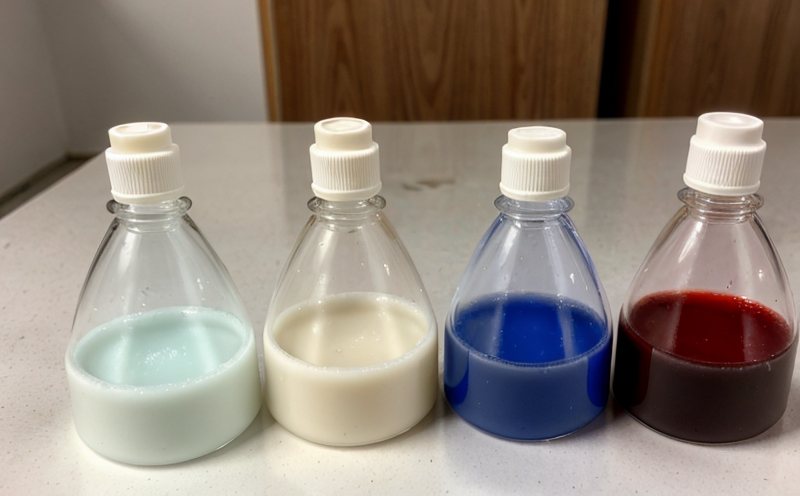Polyamide Monomer Testing
The process of polyamide monomer testing is essential in ensuring the quality and safety of materials used in various industries. Polyamides are synthetic polymers widely utilized in applications ranging from automotive components to medical devices due to their excellent mechanical properties, heat resistance, and chemical stability.
In this context, monomers play a critical role as they form the backbone of polyamide synthesis through a condensation polymerization reaction. The testing of these monomers ensures that each batch meets stringent quality standards set by international standards such as ISO 9001 for quality management systems and ASTM D7825 for analytical procedures.
The primary goal of this test is to identify the purity, molecular weight distribution, and structural integrity of polyamide monomers. This involves a series of rigorous analyses including gas chromatography (GC), nuclear magnetic resonance spectroscopy (NMR), and Fourier-transform infrared spectroscopy (FTIR). Each method serves its unique purpose:
- Gas Chromatography: Measures the purity level by separating different components within the monomer mixture.
- Nuclear Magnetic Resonance Spectroscopy: Provides detailed information about molecular structure and functional groups present in the sample.
- Fourier-Transform Infrared Spectroscopy: Identifies specific chemical bonds that are characteristic of polyamide monomers, thus confirming their identity.
The importance of accurate testing cannot be overstated; even minor deviations from specified parameters can lead to compromised product performance or potential health hazards. For instance, in the automotive industry, poor quality polyamides could result in weakened structural integrity leading to accidents. In medical applications, impure monomers might cause biocompatibility issues rendering them unsuitable for use.
Understanding these implications helps us appreciate why thorough testing is crucial before any manufacturing process begins. By adhering strictly to prescribed protocols outlined by relevant standards bodies like ISO and ASTM, manufacturers can ensure consistent output quality across all batches produced.
Why It Matters
The significance of polyamide monomer testing extends beyond just maintaining compliance with industry regulations; it also significantly impacts various aspects of manufacturing processes. Ensuring the correct blend of raw materials leads to more efficient production lines, reduced waste generation, and ultimately lower operational costs.
For instance, accurate measurement during blending stages ensures uniform distribution throughout the final product, which translates directly into improved performance characteristics such as strength, flexibility, and durability. Additionally, by eliminating defects early in the process via robust quality checks, companies can avoid costly rework downstream or worse yet, end-of-life scrap.
Moreover, adhering to best practices in testing helps protect both consumers and workers from exposure to potentially harmful substances if used improperly. In cases where polyamides are employed in medical implants or food packaging materials, ensuring high levels of purity becomes paramount given their direct interaction with human tissues.
Why Choose This Test
Selecting the right laboratory for your polyamide monomer testing needs is crucial. Our state-of-the-art facilities equipped with advanced instrumentation provide precise measurements and reliable results every time. With experienced chemists who specialize in polymer chemistry, we offer comprehensive services tailored specifically to meet individual client requirements.
Our commitment to excellence ensures that all tests are conducted according to recognized international standards like ISO 9001:2015 for quality management systems and ASTM D7825-21 for analytical procedures. These certifications guarantee the highest level of accuracy and repeatability in our results.
We understand how important it is to have timely feedback on test outcomes so that necessary adjustments can be made promptly if required. Our dedicated team works closely with clients throughout the entire testing process, providing regular updates and detailed reports upon completion.
Customer Impact and Satisfaction
By leveraging our expertise in polyamide monomer testing, customers experience numerous benefits that contribute positively to their overall business operations:
- Informed Decision-Making: Accurate test results empower decision-makers with reliable data, enabling smarter choices regarding raw material sourcing and process optimization.
- Enhanced Reputation: Consistently high-quality products foster trust among customers, enhancing brand reputation and market share.
- Competitive Advantage: Staying ahead of competitors by maintaining superior product quality sets companies apart in competitive markets.
- Risk Mitigation: Early detection of potential issues through thorough testing reduces risks associated with non-compliance or substandard materials.
- Cost Efficiency: Preventive measures like regular testing prevent costly rework and disposal expenses down the line.
Satisfied clients have consistently praised our commitment to excellence, highlighting improvements in product quality and operational efficiency. Our focus on providing accurate, timely results has earned us a reputation as a trusted partner within the industry.





